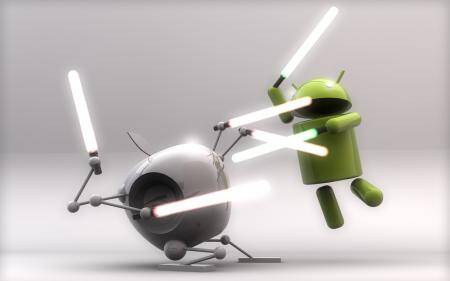I’ve been an iPhone owner since 2008, when the 3G first came to Canada, although my initial experience with iOS came slightly before this when I bought, and quickly sold, a first generation iPod Touch. At this time most people had a simple flip or candy bar phone with highly advanced T9 text input and battery life of over a week. A smartphone was a BlackBerry, and having one meant you were a rich and powerful businessman who needed to be able to tap out important emails on a tiny keyboard 24 hours a day.
I’ve been an iPhone owner since 2008, when the 3G first came to Canada, although my initial experience with iOS came slightly before this when I bought, and quickly sold, a first generation iPod Touch. At this time most people had a simple flip or candy bar phone with highly advanced T9 text input and battery life of over a week. A smartphone was a BlackBerry, and having one meant you were a rich and powerful businessman who needed to be able to tap out important emails on a tiny keyboard 24 hours a day. Things have changed since then, mainly due to smartphones achieving the fastest adoption rate in tech history.

I’ve also been an iPhone / Apple evangelist, enlisting friends and family to jump into the iPhone world. My wife used to say she would never like or use a phone as much I do, but now I see her continually switching between her second iPhone and an iPad all evening while relaxing. It is not surprising to hear that 84% said they could not go a single day without their phone, and 60% of people would rather lose their wallet than their phone.
A Spark for Change
After years of living in the iOS ecosystem, I found myself a little bored. Normally when getting a new gadget I get excited to learn and tweak it, but when I got my shiny new 4S last year I felt like nothing had changed. The feeling was correct, because in my opinion nothing substantial had changed; it just had a better camera, in a faster and thinner phone. When iOS 6.0 came out the feeling continued; it had brought absolutely nothing new to the table that particularly interested me. Late in 2012, I started seeing many others writing about the same thoughts I was having, the most notable titled “An iPhone Lover’s Confession: I Switched To the Nexus 4. Completely” from Ralf Rottmann on Gizmodo. I felt the urge for change, and decided that I needed to dabble on the metaphorical dark side. After validating that my key IOS apps now had Android counterparts (something that was not the case last year), I was officially ready to take the plunge.
Jump Right Into It
It only took a day before I had explored Android, and customized the phone to my liking. It wasn’t long before the phone was rooted and I was installing a variety of custom ROMs. The big screen and larger phone took a bit longer to get used to. I still find it very awkward and cumbersome to reach the frequently used top left corner of the screen while holding it with only my right hand, but viewing anything on the large screen is quite amazing. I now realize that I would not want a phone any bigger in dimensions than the S3, and I would actually prefer if the width was shaved down a few mm as well in order to fit in my hand better.
I also liked how third party apps can easily be made default for specific actions. The notification centre was a dream, allowing quick access to anything from music controls to system settings. It took me a while to get used to the “back” and “menu” buttons, but it wasn’t long before they became second nature. When I first picked up my old iPhone after a week with the Galaxy, I found myself trying to clumsily press a non-existent back button.
The Bad
Both operating systems are not perfect, and they both have pros and cons. I really like the Galaxy S3 because of the flexibility / customizability of Android, using the large screen real estate, and the hardware back button. The negative side of things for me really centers on the battery life. Using the phone drains the battery much quicker than my 4S did (with LTE off too), and it also drains much quicker in standby. Micromanaging background apps and resources also can be a pain because you never know if a background app is just sucking your battery dry.
What I Miss
I do miss my iPhone for some very specific reasons.
- The first is iMessage; most of my friends and family all have iPhones so group text chats are now much more difficult now. Replacement third party apps just aren’t the same since Apple introduced the blue text bubbles!
- The second is battery life. I don’t care if it is not user-replaceable, my iPhone simply had a longer lasting battery during every day usage.
- Lastly, I do miss the passive multi tasking and push notifications that iOS uses. This definitely helps battery life, since I find Android apps that utilize notifications require a background service to be always running sucking up CPU cycles.
I haven’t decided if I will stay on Android permanently, but I’m definitely keeping both devices as it allow me to become an expert on both platforms. I’m going to wait patiently to see what iOS7 offers up – your move, Apple.